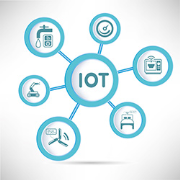According to a new survey from the Electrical Contractors’ Association (ECA), the Chartered Institution of Building Services Engineers (CIBSE) and Scottish electrical trade body SELECT, four out of 10 building clients (40 per cent) say they are ‘unfamiliar’ with the heavily-used phrase the ‘Internet-of-Things’.
 According to a new survey from the Electrical Contractors’ Association (ECA), the Chartered Institution of Building Services Engineers (CIBSE) and Scottish electrical trade body SELECT, four out of 10 building clients (40 per cent) say they are ‘unfamiliar’ with the heavily-used phrase the ‘Internet-of-Things’.
According to a new survey from the Electrical Contractors’ Association (ECA), the Chartered Institution of Building Services Engineers (CIBSE) and Scottish electrical trade body SELECT, four out of 10 building clients (40 per cent) say they are ‘unfamiliar’ with the heavily-used phrase the ‘Internet-of-Things’.
The ‘Connected Technology Survey for Clients’ ran for three weeks during November and December last year, with 229 responses received.
In addition, over half of respondents (55 per cent), who include consultants, engineers, end clients, local authorities and facilities managers, say that a ‘lack of clear advice / knowledge’ is a barrier to installing connected technology in their buildings. While over six in 10 respondents (61 per cent), say they don’t have any plans to ‘evaluate and install connected technology’.
The survey findings also reveal that clients expect buildings, across sectors including residential, commercial, retail and industrial, to soon encounter a smart technology revolution. At present, more than half of the respondents say ‘a limited number’ or ‘very little’ of these buildings have connected technology installed, but a similar number expect this to increase to a ‘significant’ or ‘overwhelming majority’ in the next five years.
ECA’s head of specialist groups, Steve Martin, said: “The survey findings show that clients rightly recognise that a smart technology revolution in buildings is on the horizon, but are generally unprepared and lack the knowledge at present to make this a success. In the coming period, the ECA will work with the wider industry to help building clients develop and implement plans to take advantage of these commercial and technological opportunities.”
CIBSE technical director, Dr Hywel Davies, added: “As digital technology becomes ever more pervasive, it will have an increasing penetration in the buildings sector. The real challenge for our sector is to deliver digital technologies that can satisfy users who are used to technology offerings, functionality and user experience from silicon valley.”
The phrase ‘Connected Technology’ refers to any technology that enables devices within a building to communicate with each other, be controlled remotely via the internet and undertake automated and reactive tasks.
At present, clients said the main reason for installing connected technology was to ‘improve energy efficiency and reduce energy bills’ (58 per cent). Over the next five years, respondents said the technologies most likely to be installed in buildings are: CCTV and security (78 per cent), heating (74 per cent), fire systems (69 per cent), and BEMS (67 per cent).